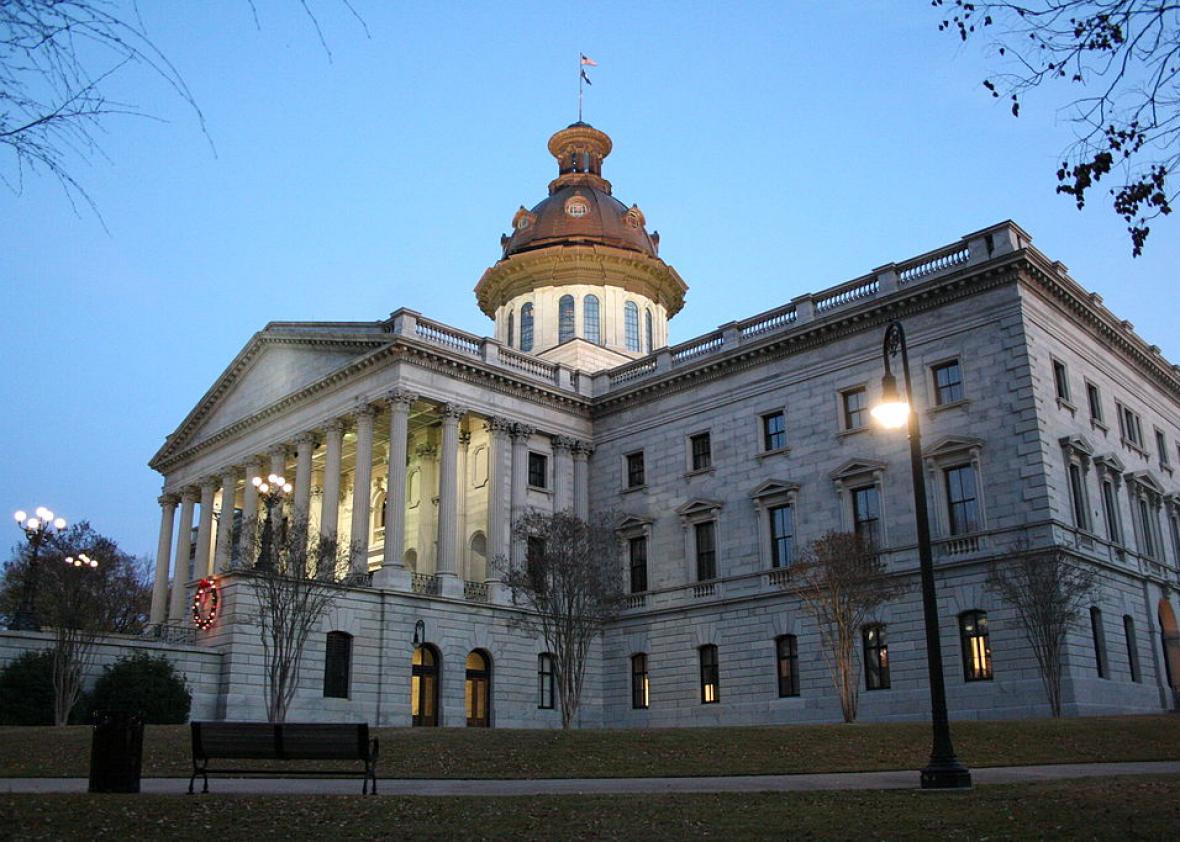South Carolina’s Republican-controlled legislature voted late Tuesday night to pass a bill banning abortion at 20 weeks post-fertilization. The rationale for the bill, which Governor Nikki Haley has indicated that she will sign, is the scientifically baseless claim that fetuses develop the ability to feel pain at 20 weeks’ gestation. Though the science is bad, this claim’s effectiveness as a piece of rhetoric has been staggering: South Carolina will be the 17th state in the country to implement such a law.
Banning abortions at this point in pregnancy can have particularly tragic consequences, as Alyssa Miller of Planned Parenthood South Atlantic said in a statement. “The reality is that abortion later in pregnancy is extremely rare and often takes place in complex and difficult situations where a woman and her doctor need every medical option available,” she said. Miller is referring to the fact that many of the most severe and life-altering birth defects first become apparent on a sonogram at roughly 20 weeks. South Carolina’s law does not permit exceptions in cases of rape and incest; the only loopholes exist when a woman’s life is in danger, or when a defect would render the fetus unable to survive outside the womb.
This “is a very nebulous standard,” as pediatric cardiologist Darshak Sanghavi has written in Slate, in reference to a similar exception to a 20-week ban in Texas. “For example, defects resulting in long-term vegetative states” or “genetic abnormalities causing death and severe disability but with a tiny chance of longer life” could theoretically fail to qualify. It’s also the case that in states with multiple restrictions on abortion—of which South Carolina is one—women who decide to terminate early in pregnancy can be delayed for weeks or months as they scrape together money or contend with logistics. The new bill constricts an already narrow window of opportunity.
Like most Targeted Regulation of Abortion Providers, or TRAP laws, 20-week bans like South Carolina’s would have been considered a flagrant violation of Roe v. Wade—which established a right to abortion until the point of “viability,” usually set at about 24 weeks—before 2010, when Republican lawmakers swept into state legislatures en masse and shifted the abortion debate decisively rightward. Nebraska passed the first 20-week ban that very same year. A core of anti-abortion lawmakers in South Carolina have been attempting to follow suit since 2011, when they first introduced a version of the bill that passed Tuesday, according to the Guttmacher Institute’s Senior State Issues Associate Elizabeth Nash.
“It appears that this bill magically moved overnight, but it really didn’t,” Nash says. “It was first introduced in 2011, and it’s been introduced every year since then. That is typical of how legislation moves in states.” In other words, it took this bill five years to work its way from fringe proposal—and, in the eyes of many, open act of defiance against Supreme Court precedent—to run-of-the-mill legislation with majority support. (The bill passed the state house 79-29 and the senate 36-9.)
That’s an eerily fast turnaround, especially considering that South Carolina lawmakers have already introduced the first version of their next anti-abortion project: a so-called “dismemberment abortion” ban. Modeled on draft legislation from the National Right to Life Committee, this style of TRAP law has already passed in Alabama, Kansas, Mississippi, Oklahoma, and West Virginia. “Dismemberment abortion” is a nonmedical—and intentionally grotesque—term for “dilation and evacuation,” the safest and least invasive method available to abortion providers after roughly 14 weeks. Providers have generally indicated that they see this new wave of bills as a ban on abortion after that point, or more or less after the first trimester. That would be an extreme check on women’s rights—but, if the evolution of the 20-week ban is any indication, it could start to look mainstream terrifyingly soon. “I do think this is a restriction that is just waiting to pop up in lots of states,” says Nash.
The “dismemberment” ban “has virtually no chance of passing this year” in South Carolina, according to ABC News—but that is unlikely to deter its supporters. The bill is lurking in the background, a reminder that abortion opponents in South Carolina are far from finished.
